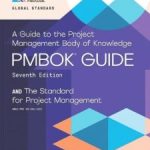
The world is a complex place. Ask any engineer. Most engineer's jobs generally fall into the category of trying to make the complex more simple, in order to understand its constraints. Particularly its upper and lower limits. Complex systems, like a manufacturing plant, or a project with many interconnected parts, contain so many related variables that it is often … [Read more...]













